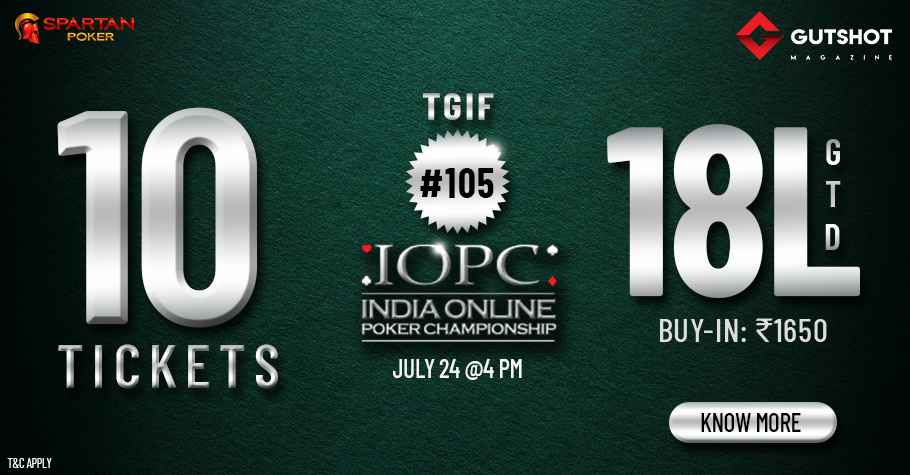 Poker
Poker
Big Stack University Tips: How to play against the limpers?
A player who checks more often rather than raising a bet is known as a limper in poker. Playing against limpers can be one of the most annoying tasks but not when you see them as your potential pot builders. Today, Big Stack University is here to cover an important topic of playing against limpers and defeating them.
Don’t be an open limper
Open limping is when you choose to just call the bet of the big blind in the pot as the first player. This is rarely seen as a profitable game strategy by any poker expert which is the reason why it is mostly suggested to not be an open limper in the game. Now, open limping is not at all similar to limping behind the limpers which some novice players confuse it with. Limping after a limper is considered a good poker strategy and can be profitable too.
On the other hand, open limping is a passive and weak game strategy according to most of the poker professionals. It takes away your chances of winning the pot thus leaving you with lesser winning opportunities. Moreover, open limpers are left with fewer chances of winning it post-flop too. So, what should you do, if not open limp? Well, raising is the most recommended action pre-flop after the BB.

WHY RAISE?
Raising preflop will result in the weak hand-holders folding their cards. It increases your chance of winning post-flop. Now, you know why being an open limper is not one of the best strategies for you.
Next, we are going to look at how to play against these limpers.
- Understand the strategy of the limper
All limpers might not have the same strategy. To play against them profitably, the first step is to understand the strategy that they choose to play. Different limpers play with different hand ranges. Most limpers play with straightforward hand ranges. Playing with straightforward ranges means that the player raises when he/she think that they have a strong hand and limps when they believe their hand is not worth raising or is weak, in other words. However, on the other hand, some of the limpers just raise any pair.
All these players opt for playing with a different strategy. So, in order to beat them, it is essential to figure out their game play. Once you understand this, you can plan and play your game in a way that ruins their strategy and improves your winning chances
- Play tight against these limpers
Theoretically, playing aggressive is seen as the best play against the limpers. Whenever a player open-limps he is trying to tell his opponents that he has got a hand that is good enough to be played from the position he is in. In this case, playing tight is recommended.
- Raise with strong pairs
As per most professionals, in order to crush the limpers, you should raise strong pairs and hands. You must have a linear range of the best hands to raise. You can also try to bluff them but the best play is to stick with raising them. The reason being, you want to extract the maximum value from them.
- Fold more against raises after you C-bet
Players who limp preflop passively are the ones that can also play with random offsuit. The crucial part is that they love calling with their draws. In such a situation you must play tighter than usual.
- Value bet thinner, especially on the flop and turn
Sometimes these recreational limpers are also known as calling stations. They’re willing to pay more than they usually should, to hit a draw. Such players lack fundamental concepts and overvalue their limped pots. In such a situation you must opt for a thinner than you normally would have, for profitable adjustments on the flop, and the turn.
Big Stack University has more such lessons for poker enthusiasts! For more such tips and tricks from them stay tuned to GutshotMagazine.com !
More News
Top 15 Poker Rooms
-
WPT Global
Grab your welcome offer
Offer: 100% of your deposit back up to $3,000 Register -
PokerDangal
Deposit with code GSTDISCOUNT
Offer: Get 100% GST discount on deposits Register -
Natural8 India
Sign-up with Gutshot
Offer: Get extra 28% on all deposits Register -
Spartan Poker
Sign-up with referral code AFFGSMAG
Offer: FTD 50% Bonus Money up to ₹20K. Deposit code ‘ALLIN50’ Register -
Junglee Poker
Sign-up and get bonus
Offer: Up to ₹50,000* Register -
Calling Station
Sign-up with promo code 'AFFCSGUT'
Offer: 30% FTD bonus with code FTD30 Register -
WinZo Poker
Daily Winnings Up To ₹40 Crore!
Offer: Get ₹550 Joining Bonus For Free Register -
Stake Poker
Welcome bonus
Offer: 200% up to ₹120,000 Register
Newsletter
Thank you for subscribing to our newsletter.
This will close in 20 seconds

























